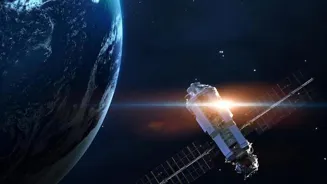Satellites: Our Eyes in the Sky, Unveiling Earth and the Cosmos. Discover how these space marvels shape our world!
For generations, humankinds thirst for knowledge has pushed us to look beyond our immediate
surroundings. Now, with the power of space technology, especially satellites, we are able to observe our planet and the vast universe in ways our ancestors could only dream of.
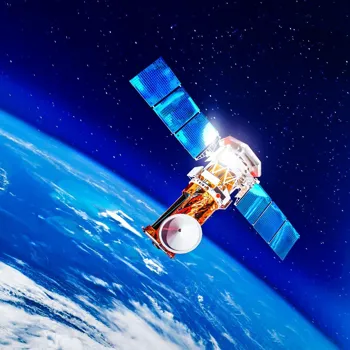
These sophisticated machines orbiting high above us are providing valuable data and insights that are transforming different fields, including environmental monitoring, weather forecasting, communication, and exploration of outer space.
Let’s see how these "eyes in the sky" are helping to understand Earth and beyond.
Satellites monitor environmental changes for accurate forecasting
Satellites play a crucial role in monitoring the environmental changes affecting our planet. They provide a wider view and can cover areas, which are inaccessible to ground-based sensors.
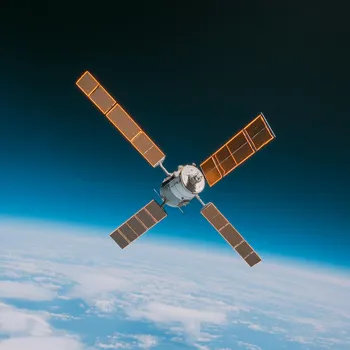
For example, weather satellites like INSAT series and ocean observation satellites like Oceansat, helped India deal with weather conditions and study ocean characteristics.
By collecting data on parameters such as temperature, humidity, wind speed, and cloud cover, satellites enable weather forecasting with improved accuracy and assist in predicting natural calamities, so that administrations can take proactive steps to secure people's life.
Satellites vital for climate analysis, disaster management worldwide
Satellites give vital information about our atmosphere, land and water. They help us to analyse climate change issues, which is a global talking point.
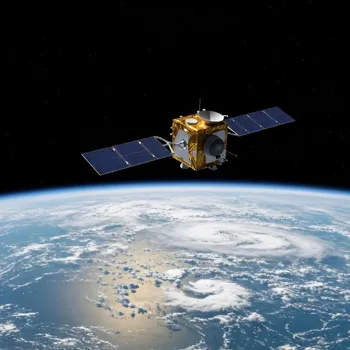
Satellites monitor the melting of glaciers in the Himalayan range, rise in sea levels affecting coastal regions, and track deforestation happening in Amazon rainforest.
These observations help scientists to understand the impact of human activities on the planet and also assist in designing policies for mitigating climate change and promoting sustainable development. Satellites also play a crucial role with disaster management.
Remote sensing satellites are used for monitoring floods, earthquakes and cyclones.
Satellites crucial for global communication and navigation
One of the most significant contributions of satellites is in the domain of communication and navigation. Communication satellites have revolutionized the way we connect with each other across the globe.
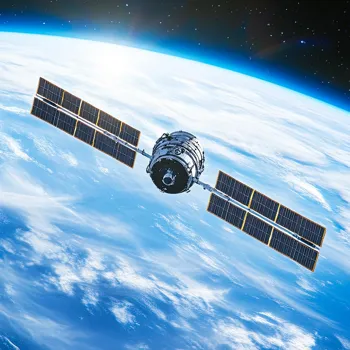
They relay signals for telephone calls, television broadcasts, and internet access, bridging geographical distances and enabling seamless communication.
Navigation satellites, such as the Indian Regional Navigation Satellite System [IRNSS] provide accurate positioning and timing information, which is essential for various applications including transportation, logistics, and emergency services.
Satellites and space telescopes revolutionize space exploration
Satellites are playing a critical role in broadening our understanding of our Solar system and the Universe.
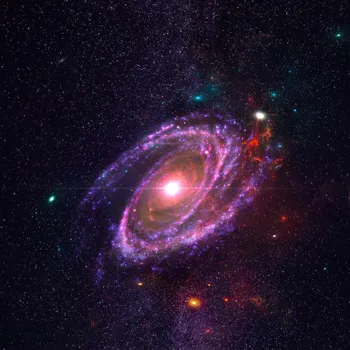
Space telescopes like the Hubble Space Telescope, along with other astrophysical observatories like Astrosat orbiting far above our planet, allow astronomers to study celestial objects with unprecedented clarity, unobstructed by the Earth's atmosphere.
These telescopes have captured stunning images of galaxies, nebulae, and other cosmic phenomena, providing clues about the age, evolution, and ultimate fate of the universe.
Using spectroscopy and other analysis techniques, space telescopes help scientists to determine the composition, temperature, and movement of celestial objects, opening new avenues for research.
India excels in space technology through ISRO missions
India has made significant strides in space technology. The Indian Space Research organisation (ISRO) has developed and launched a range of satellites for different purposes, including earth observation, communication, navigation, and space science.
Missions like Chandrayaan and Mangalyaan helped in proving India's capabilities in space exploration. These missions provide valuable data about our neighbouring celestial objects and inspire the younger generation to pursue careers in science and technology.
With its space program, India is contributing to the global understanding of Earth and the universe.
Satellites: Eyes and Ears of Humanity in Space
In conclusion, satellites are the eyes and ears of humanity in space, providing knowledge about our planet and universe. From environmental monitoring and weather forecasting to communication and space exploration, satellites have become an indispensable part of our lives.
As technology advances, we can expect satellites to play an even more important role in addressing global challenges, expanding our horizons, and inspiring us to reach for the stars. They help in connecting people on the Earth and also understanding our Earth in a better way.
